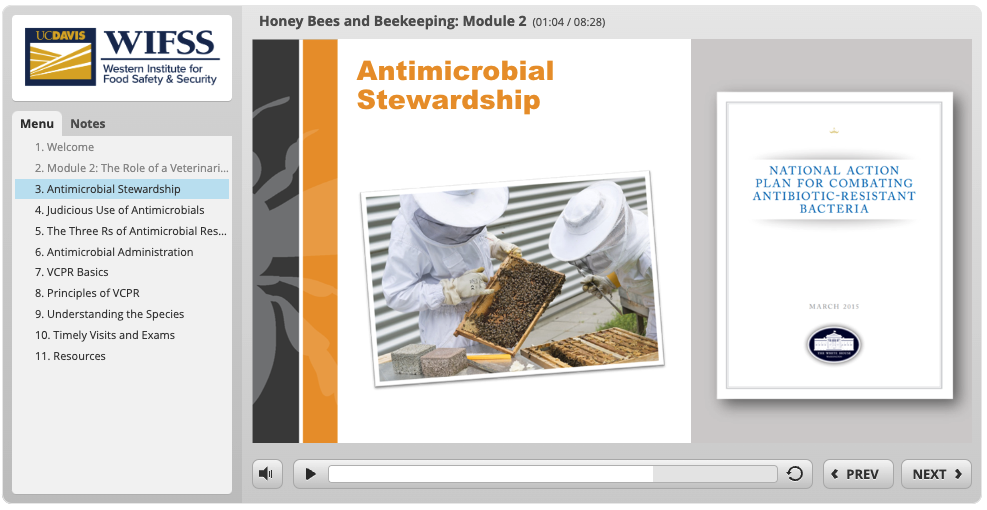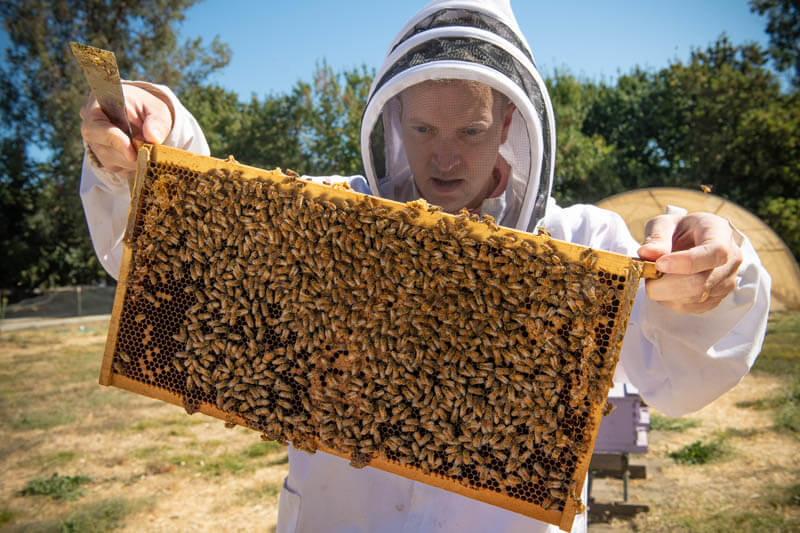Author: Heather Johnson, M.S.
Instructional Systems Designer
WIFSS, UC Davis
1.5 AAVSB RACE Certified CE Units Available
To improve the health of honey bees, and to help provide training in apiculture for veterinarians, the E.L. Niňo Bee Lab at UC Davis in partnership with the Western Institute for Food Safety and Security, the UCD School of Veterinary Medicine, and the Oregon State Honey Bee Laboratory have worked together to create an online asynchronous course customized for veterinarians and veterinary technicians. This course covers the basics of apiculture, honey bee biology, and the veterinarian’s role in providing antibiotics to treat or prevent disease in hives. This course has recently been certified by the AAVSB RACE program for continuing education credit for veterinarians and veterinary technicians. Follow the link below to read more about the course and to sign up and get started today!
Who should take this course?
This course is specifically designed for veterinarians and veterinary technicians who want to learn about the basics of honey bee biology, the basics of apiculture, and the regulations on antibiotic use and how those regulations impact apiculturists. Veterinarians are needed to help diagnose and treat diseases that impact honey bees, and veterinarians are required to provide prescriptions for antibiotics in accordance with the regulations that govern prudent use of antibiotics in agriculture.
Why is this course important?
Most people are aware of how important honey bees are to all of us. They are vital for reproduction in many of our favorite fruit and vegetable crops, and are a unique part of agricultural production because many colonies do not stay put! They travel around the county like tiny insect celebrities setting up shop on the side of orchards and fields from New York down to Florida, and then across the country to Arizona, California, Oregon, and Washington. Recently we have seen the unfortunate loss of many of our insect partners when natural disasters struck throughout the country. In Florida, in October of 2022, the country lost an estimated 1 out 7 U.S. hives when hurricane Ian struck the east coast causing tornadoes, falling trees, and flooding that destroyed bee hives faster than anyone could save them. In California, in 2020, an estimated 1 million bees were lost to wildfires that swept through the state just as the precious pollinators arrived to do their work on the almond trees in February. Honeybees have also been the target of theft, and are subject to devastation by disease and other pests. This is why the researchers at UC Davis are so interested in learning about honey bees, and are passionate about training others on the best practices for how to best care for them. Veterinarians, especially, are realizing the important role that they play in managing the health and well-being of our nation’s populations of honey bees.



